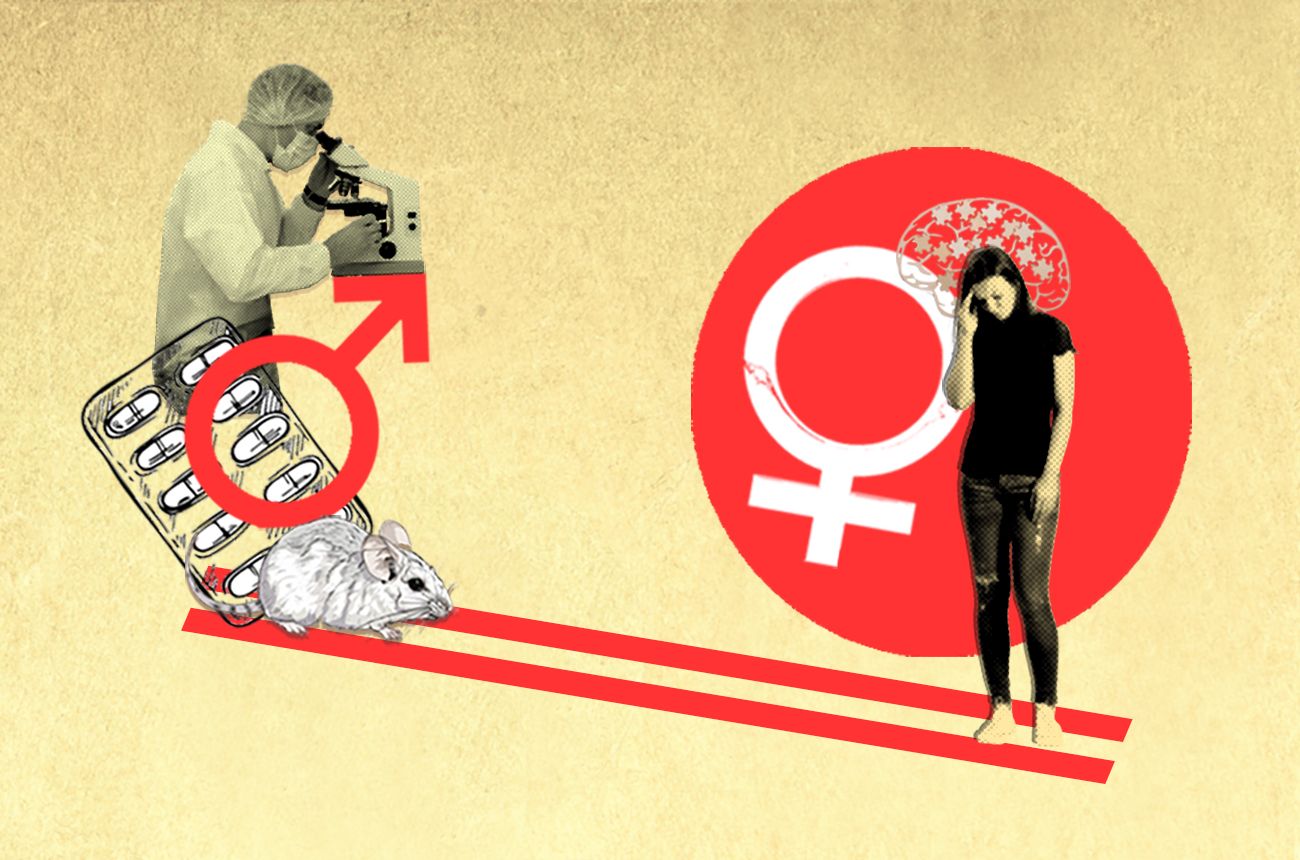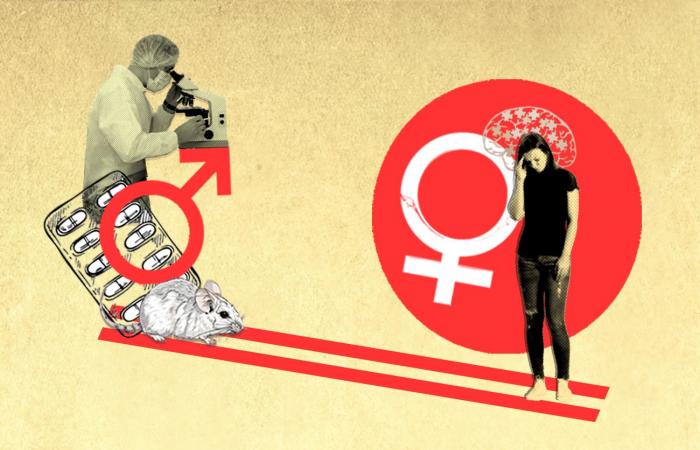A second Trump presidency calls into question drug pricing negotiations under the Inflation Reduction Act and many other Biden-era health policies.
Copyright 2024 The Associated Press. All Rights Reserved.
A second Trump presidency could boost biomedical innovation. However, it also risks eroding public trust in the pharmaceutical industry if science, commerce and public health are left out.
This content was published on
November 17, 2024 – 10:00
In the US presidential election, the stakes were high for big pharmaceutical companies, including the two big Swiss players, Roche and Novartis. Under the Biden administration, the U.S. government began negotiating drug prices with industry for the first time. A second Trump presidency calls this and many other Biden-era health policies into question.
“We still have to see what Donald Trump’s policies will be,” David Reddy, who heads the International Federation of the Pharmaceutical Industry (IFPMA), told swissinfo.ch on the sidelines of the Financial Times (FT) Global Pharma Summit in London. “But regardless of political party, everyone wants the same thing: health and innovation.”
It remains to be seen how Donald Trump plans to move forward on many health-related issues. It is very likely that lowering drug prices, with the aim of reducing the financial burden on patients, will be on his agenda. Vice President Kamala Harris was expected to expand Biden-era price negotiations beyond ten initial drugs, which the pharmaceutical industry said would have reduced its profits and thwarted investment in medicine. ‘innovation.
Donald Trump has not yet said whether he will continue on the same path. During his first presidency, he also sought to lower drug prices, but made little progress on his proposalExternal link to use international drug price comparison to obtain a fair price in the United States.
Any measure aimed at lowering drug prices has direct repercussionsExternal link on Swiss businesses and the economy. The United States is the world’s largest pharmaceutical market, accounting for more than 40% of global pharmaceutical sales from major companies such as Novartis and Roche. Half of Switzerland’s growth over the past ten years has come from the pharmaceutical industry. A drop in the price of medicines would therefore affect Switzerland’s growth and tax base.
But the pharmaceutical industry has other concerns with a Trump presidency. If the campaign’s rhetoric on science, safety and public health is any sign, Donald Trump’s return to the White House could test the public’s faith in the pharmaceutical industry, which is well on its way to beyond drug prices.
Plus
Plus
Donald Trump or Kamala Harris: the consequences for Switzerland
This content was published on
04 nov. 2024
Donald Trump or Kamala Harris: for Switzerland, it is not necessarily white hat and white hat. Explanations.
read more Donald Trump or Kamala Harris: the consequences for Switzerland
Innovation «radicale»
One of the questions hanging over the industry is how the Trump administration will view biomedical innovation. “Donald Trump and his close supporters, like Elon Musk, have shown that they are not afraid of radical innovation,” a Swiss pharmaceutical company executive said at the FT Summit.
This momentum could inject new investments and ideas into hard-to-treat technologies and diseases, but it could also lead to major disruption. There are already signs that the president-elect wants to overhaul, or even eliminate, entire federal agencies that serve to spur innovation and protect public health. Republican lawmakers have already discussed massive restructuringExternal link from key US agencies such as the Centers for Disease Control and Prevention and the National Institutes of Health.
“The U.S. Food and Drug Administration is in many ways the gold standard and is an institution that many admire around the world,” said Sebastian Guth, director of operations at German pharmaceutical company Bayer in the United States. United, during a round table on the American elections. “As an industry, we are very dependent on working with agencies that are predictable, science-based, and who do not waver in their commitment to patient safety.”
Le document Project 2025External linkprepared by American conservative groups, points the finger at the pharmaceutical industry, “calling for safeguards against pharmaceutical companies’ takeover of the regulation of our public health agencies.”
Donald Trump is also expected to take a tougher stance on China than his predecessor, which could raise suspicions about partnerships between big pharma and players in China’s booming biotech scene. growth. This comes at a time when China has become a more important center for biomedical research and development, particularly for oncology drugs and artificial intelligence.
Many companies have also strengthened their manufacturing ties with Chinese suppliers. This situation could become more complicated in the event of strengthening sanctions against China or broader protectionist policies.
The Swiss pharmaceutical industry is heavily dependent on global trade. Around 40% of Swiss exports come from the pharmaceutical and chemical sector.
“Favorable framework conditions for innovation are essential,” said Georg Därendinger, who heads communications for the Swiss pharmaceutical industry association Interpharma. “We are opposed to protectionist tendencies and industrial policy.”
Concerns for science and public health
The biggest threat to confidence in the industry may well be Donald Trump’s views on science and public health. Trust in science has declined in the United States since the pandemic. A survey conducted by the research firmExternal link Pew in 2023 found that more than a quarter (27%) of American adults have little or no trust in scientists, up from 13% in 2019.
Donald Trump and many of his high-profile supporters have expressed skepticism about vaccines and promoted questionable scientific theories in the past. Health policy proposals included in the Project 2025 document call for a diminished role of scientific research, but the president-elect has denied any involvement in the project.
Plus

Plus
Manufacturers are finally starting to think about drugs for women
This content was published on
24 sept. 2024
Sex and gender are rarely taken into account when developing medicines, which has consequences for women’s health. But things are changing.
read more Manufacturers are finally starting to think about drugs for women
Donald Trump said he would let vaccine skeptic Robert F. Kennedy Jr. “run amok” at the U.S. Food and Drug Administration and would not rule out banning certain childhood vaccines. According to a published studyExternal link In The Lancetvaccines have saved 154 million lives worldwide in 50 years.
According to the “Make America Healthy Again” movement, Robert F. Kennedy Jr would address chronic illnesses such as obesity, diabetes, autism, cancer and mental illness. But reproductive rights should be cut, as should investments in women’s health researchExternal linkwhich have been woefully underfunded.
Funding for key global health initiatives, such as Pepfar, the US government’s global effort to combat HIV, could also be at risk. In 2020, Trump withdrew the United States from the World Health Organization (WHO), accusing the Geneva-based group of being corrupt and under the control of China in the wake of the coronavirus pandemic. President Biden reintroduced the United States as a member.
If Donald Trump weakens the WHO and other global health projects, he could make life more difficult for pharmaceutical companies that partner with them to expand access to medicines and build health infrastructure in markets. low income.
The pharmaceutical industry already suffers from a trust deficit. Michael Elliott, vice-president for Europe at US company Gilead Sciences, told the FT summit that if the scientific basis of industry’s work was questioned, it would be even more difficult to gain public trust. “We need to redouble our efforts on communications, not only for people’s health, but also because it raises questions about the value the industry provides.”
Text proofread and verified by Balz Rigendinger, translated from English by Mary Vacharidis/op
Plus

Plus
Want to know more? Subscribe to our newsletter
Subscribe to our newsletter for the Fifth Switzerland and receive our best articles in your inbox every day.
read more Want to know more? Subscribe to our newsletter









